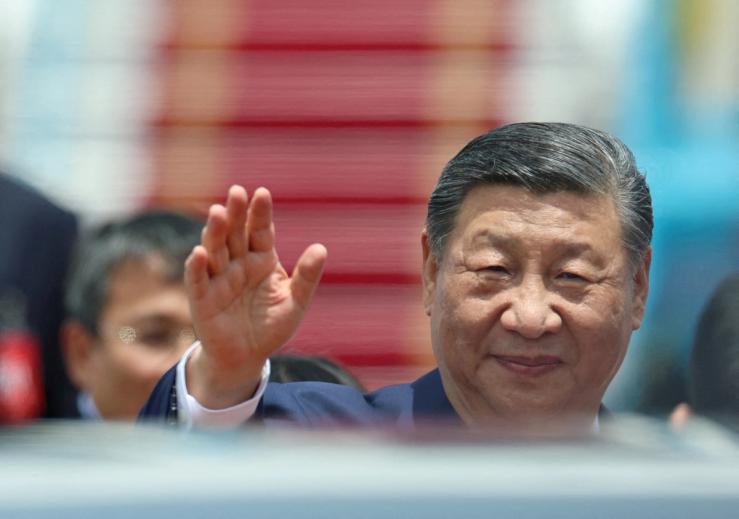The News
China’s Xi Jinping arrived in Moscow Wednesday for a four-day state visit aimed at deepening the “mutual trust” between the Chinese leader and Russian President Vladimir Putin, Beijing said.
Officials are set to ink a series of agreements during the sojourn, and both leaders are expected to discuss Ukraine and Russia-US relations in a bilateral meeting, the Kremlin said.
Xi is the guest of honor for Russia’s annual Victory Day parade on Friday, a politically important celebration to commemorate the 80th anniversary of the defeat of Nazi Germany in World War II.
Putin has ordered a three-day ceasefire with Ukraine to coincide with the celebrations, but Kyiv has dismissed the gesture, warning that it is not responsible for the safety of foreign officials in Russia.
SIGNALS
Xi’s bet on closer ties with Moscow remains a double-edged sword
While close ties to Moscow have afforded China access to cheap Russian energy and weapons, Chinese leader Xi Jinping’s relationship with Russian President Vladimir Putin has complicated Beijing’s push to increase trade with Western nations, analysts argued. But for Moscow and Beijing, the “war-induced investment in their decades-long relationship has paid off massively,” one analyst argued, with further benefits possible as Donald Trump’s disruptive trade policies push more countries to reconsider China as an alternative to Washington. Even so, Beijing’s closeness to Moscow is now complicating China’s outreach to Europe in response to Washington’s trade war: “By visibly aligning with Putin, … Beijing reinforces suspicions that it is willing to side with revisionist powers,” unnerving Europe and parts of Asia, a China expert argued.
Xi’s trip underscores challenge of so-called ‘reverse Kissinger’ strategy
Xi Jinping’s trip to Moscow underscored the challenges inherent in the Trump administration’s apparent aim of stopping Russia and China from becoming closer, with Xi on Wednesday writing in Russian media that both countries “must foil all schemes to disrupt or undermine our bonds.” Washington officials have repeatedly indicated they want to achieve what analysts have called a “reverse Nixon,” a reference to that president’s forging diplomatic ties with Beijing to isolate the then Soviet Union. Experts point to China and Russia’s history of conflict, Moscow’s concerns over China’s influence in Russia’s East, and Beijing’s wariness about Moscow’s militarism as real limits to their partnership. In China, doubts persist about how close it wants to be with Russia, a historian of Russian-Chinese relations argued.
Russia’s Victory Day has become a celebration of Moscow’s war in Ukraine
Russia’s Victory Day celebrations, conceived to commemorate the Soviet Union’s fight against the Nazis in World War II, have evolved into an opportunity for Vladimir Putin to foster nationalism and — more recently — honor Russian soldiers fighting in Ukraine. The holiday is the “main marketing tool employed to legitimize Russia’s current political regime,” a Russian analyst said, creating ties between Putin and a glorious military victory. The slogan “we can do it again” has grown increasingly popular, The Guardian reported, and the Kremlin has long argued, without evidence, that Russia’s fight in Ukraine is aimed at the “denazification” of the country. This “selective reading of Russian history” is a key part of what drove Putin to invade Russia’s neighbor, a leading WWII historian argued.



